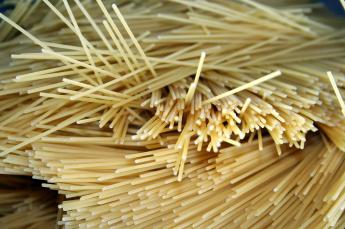Local Food

Welcome to Local Food - one of our "Food Issues" info pages (see menu to the right for other topics).
These Food Issues pages are designed to give you a little food for thought about some of the issues involved with sustainable eating. Think of these pages as a taster for each issue: just some brief info to introduce the concept and whet your appetite.
After sampling each issue, you may like to move onto the next "taster" or sink your teeth into some more substantial fare by using the links on each page.
_________________________________________________________
Have you ever wondered how far your food has travelled before it got to you?
Is your dinner a local ... or has it clocked up more frequent flyer points than the Jetsons?
And why should you care?
Food miles is a measure of how far food travels - from paddock to plate.
And it's one of the key measures of how sustainable it is, because air and road travel consumes fuel and energy, and releases greenhouse pollution and affects the global climate.
Local food is great.
Think about it... it's fresher, it keeps money in local economies and it requires less "middle-people" meaning what the consumer pays is less eroded before the producer receives it.
Then there is the social side of knowing you are supporting your local community and having the chance to meet the growers.
Check out these links:
- Community Foods for great links to farmers markets, seed savers, community gardens and Community Supported Agriculture
- Community Supported Agriculture
- Community Garden Network
Like most food issues, calculating the net benefits of buying local is complex.
For example it has been argued that when purchasing foods which require lots of water in production such as rice, it is actually more sustainable to grow it in a high rainfall area and transport it to Australia than to grow it locally!
Similarly, some people believe that on a social level we should think as "global citizens". The idea here is that the net benefit to a community in a developing country generated by your purchase may be far more significant than the impact of the same purchase of local produce. So some people deliberately select fair trade produce from poor communities overseas above local produce.
Peter Singer and Jim Mason's book The Ethics of What We Eat, explains this in more detail.

<< Home